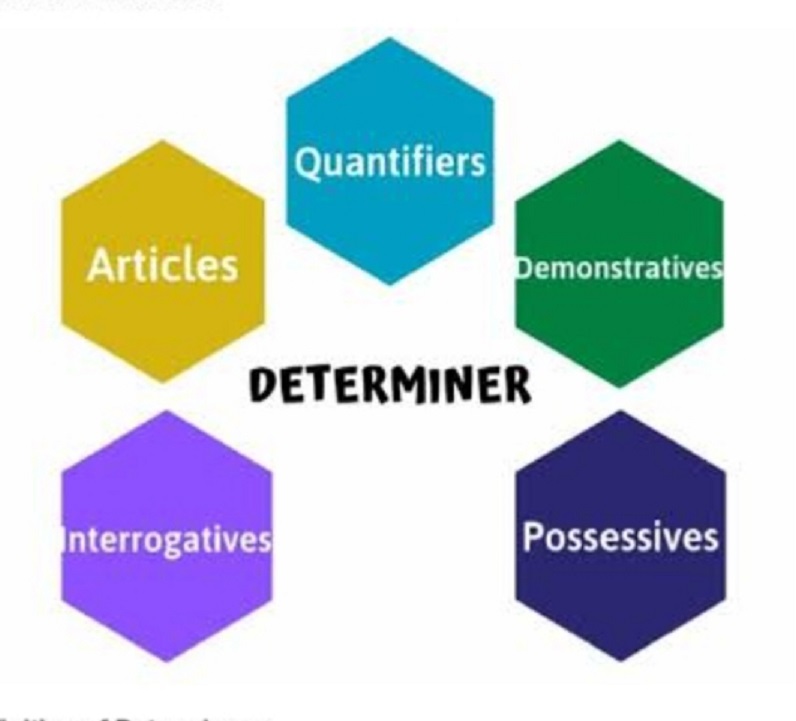
Determiners are a small group of short, but highly important, words which come before nouns. A determiner specifies a noun but does not describe it. The main types of determiners are articles, quantifiers, possessives, and numerals. In this edition, we will examine articles.
Definite and Indefinite Articles
The English Language has two articles: “the” and “a/an”. We use them to refer to specific nouns. “A” and “an” signal that the noun modified is indefinite, referring to any member of a group.
We call “the” definite article and “a/an” the indefinite article.
For example:
“Let’s read a book,” (any book)
“Let’s read the book,” (a specific book)
Using Indefinite Article: “a” or “an”
A common noun in the singular number always requires an article before it. However, a plural common noun does not require an article always. A plural common noun can have the article ‘the’ if we want to particularise that noun.
The choice between the two indefinite articles – Article “a” is used when it comes before a noun with an initial consonant sound. e. g. A book (The noun book begins with /b/ sound)
An is used before a noun that has an initial vowel sound. e.g.
An MSc holder (The degree MSc has an initial /e/ sound when pronounced)
Note that the initial sound of the word that follows the determiner will let you know whether you will use “a” or “an”.
An Msc degree (Msc begins with the consonant letter M, but the M is pronounced with an initial /e/ which is a vowel sound.
An umbrella, an MA, an LLB, An excellent hospital ( A hospital) an hour (Hour begins with the consonant letter h, but the /h/ is silent so what is realized is /aʊə/
Note that you should use ‘a’ as hospital begins with the consonant sound ‘h’ but if the adjective ‘excellent’ is used to describe the hospital you would use ‘an’. So ‘it is a hospital’ or ‘It is an excellent hospital’. In contrast ‘hour’ is fronted by ‘an’ as the initial sound is a vowel sound.
A driver’s license
An expired driver’s license
A European (European begins with a vowel letter e, but the consonant sound /y/ when the word European is pronounced.
A university student (University begins with the vowel letter u, but the consonant sound /y/ is realized when pronounced.
“A” or “an” – sometimes makes a proper noun a Common Noun. Proper nouns generally do not take any articles, but when a proper noun needs to be used as a common noun, you must bring “a” or “an”.
Example: He thinks he is a Wole Soyinka. (Here, ‘Wole Soyinka’ does not refer to the actual person but someone like him.)
Indefinite articles often precede descriptive adjectives.
Example: He is a good boy.
Using Definite Article: the
“The” is used to refer to a specific member of a group. For example, “I just saw the most popular movie of the year. “There are many movies, but only one particular movie is the most popular. Therefore, we use the.
‘The’ is used to indicate a particular person(s) or thing(s) in the case of common nouns. Proper nouns generally do not take an article.
Example: The man is running. (A particular man)
Where is the pen I gave you last year?
I gave him a ball, but he lost the ball. (‘a ball’ became ‘the ball’ in the second clause because that ball was not a random ball anymore.)
Sometimes ‘the’ is used to generalize a group/whole class.
Example: We need to take care of the old (Old people generally)
The dog is a faithful animal.(Refers to the whole species of dog.)
The poor are not always dishonest. (The+adjectives = plural noun)
To particularise a non-count noun ‘the’ is required before it.
Example: The water of the Arctic Ocean is freezing.
Please return the money I lent you last year.
‘The’ is mandatory before a thing that is only one of a kind in the universe.
Example: The sun is going to shine
Use of ‘the’ before geographical places:
‘The’ must not precede the names of continents: Asia, Europe, Australia, Africa, South America, North America, Antarctica.
‘The’ must precede:
Names of oceans, gulfs, seas, and rivers: the Atlantic, the Pacific, the Atlantic, the the Niger, the Persian Gulf, the Nile, etc.
Names of countries with the United States or islands: the United States of America (the USA), the UK, the UAE, the Philippines, etc.
Kindly like, comment, follow and share




















